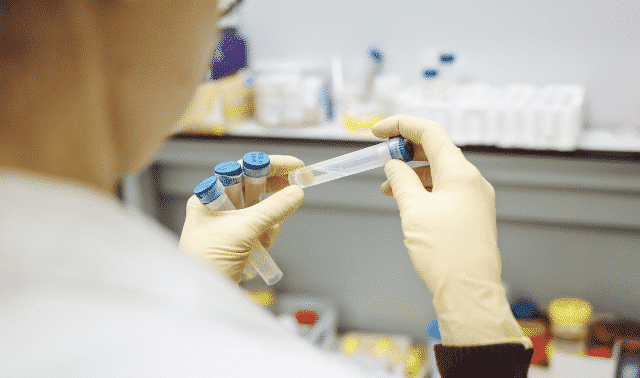Sign up for the Family Tree Newsletter! Plus, you’ll receive our 10 Essential Genealogy Research Forms PDF as a special thank you.
Get Your Free Genealogy Forms
"*" indicates required fields

You tested at AncestryDNA or 23andMe a few years ago, and aren’t sure if your results are still update to date. Do you need to retest? Is it worth buying another kit? Our DNA expert considers whether you should retake a genetic genealogy test.
Q: Do I Need to Retake my DNA Test?
A: My dad was always an early adopter of technology. I was the first of my friends to have satellite TV, the first to move from Beta to VHS, and the first to own a Nintendo. But this “first-to-the-plate” mentality can have some drawbacks, as something newer and better always seems to comes along.
This, in some ways, has been true for genetic genealogy. When autosomal DNA testing first hit the direct-to-consumer market in 2007, the DNA markers tested were from an off-the-shelf, one-size-fits-all kind of DNA test. The markers weren’t developed to investigate genetic ancestry, but for completely different purposes.
Once the DNA tests started rolling in, companies invested serious R&D in order to figure out which of the DNA markers currently being tested should stay on the “chip” (the program upon which the test is based), and which new ones should be added.
By now, most of the companies have customized the product to better meet their goals: telling test takers where we come from and who we are related to. And each of the companies does so a bit differently.
But what happens to your test results when the company changes their chip, as both AncestryDNA and 23andMe have done? For the most part (thanks to smart people and algorithms), you don’t have to do anything. Your data can still be compared with tests on the newer versions of the chip, and you’ll get new DNA relatives and updates to your ethnicity report, free of charge. The fancy term for new technology talking the same language as old technology in this way is “backwards compatibility.”
How is that possible? The companies use a process called imputation, in which, based on the vast amounts of genomic information from throughout the world, they take your current data and predict what your values would be at the places they didn’t test.
For a more concrete explanation: Think of those games circling the internet where you’re challenged to read sentences that have a bunch of missing letters. Most people can most of the time, because the human brain is very good at imputing data—filling in the missing pieces based on previous knowledge. DNA testing companies do the same thing when they upgrade their chip, or when they’re processing data you’ve asked them to transfer between sites.
This has been true for AncestryDNA’s only chip upgrade (as of 2021), as well as for 23andMe’s first four upgrades. However, 23andMe is asking its customers to pay to upgrade to version 5 (V5) if they want to continue receiving updates. Most of the affected features are health- or trait-based. But 23andMe claims V5, which costs $79 to upgrade to from the V4 chip, will also offer the most recent updates to Ancestry Composition. (In my opinion, it’s unclear if you need the upgrade to access the latter.)
So should you retest? At first blush, my answer is “No.”
But—even though I trust the science of imputation as far as I have been able to study it—I can’t help but have questions about their methodology. So I’m going to make my official answer “No—but it can’t hurt!”
A version of this article appeared in the March/April 2021 issue of Family Tree Magazine.








